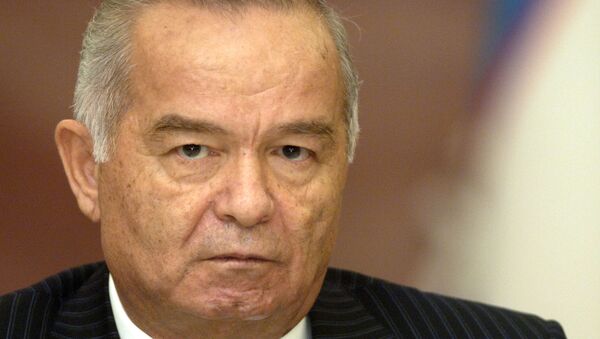WASHINGTON, June 27 (RIA Novosti) – A bipartisan group of US senators has called on Uzbek President Islam Karimov to release a human rights activist and two journalists whose imprisonment they describe as “politically motivated” and “deeply troubling.”
“Their continued detention is inconsistent with our countries’ cooperation in many other areas and symbolic of a troubling pattern of harsh treatment for political prisoners,” the lawmakers wrote this week in a letter to Karimov, a strongman who has led the gas-rich Central Asian republic since 1989.
The 12 senators who signed the letter asked Karimov to provide information about the health status of human rights advocate Akzam Turgunov and journalists Dilmurod Saidov and Salijon Abdurakhmanov, who have each been sentenced to at least 10 years in prison on charges ranging from forgery to extortion to drug trafficking.
Human rights groups accuse Uzbek authorities of fabricating the cases as retribution for the prisoners’ vocal criticism of Karimov’s government.
Citing reports that the three men may be suffering from poor health and lacking access to “adequate medical attention,” the US lawmakers urged Karimov to “immediately and unconditionally release” the three men given “the deeply troubling questions regarding the validity of these cases.”
The letter’s signatories include Republican Sen. John McCain and Democratic Sen. Benjamin Cardin, both harsh critics of the rights records of governments in the former Soviet Union, including Russia.
Ties between Washington and Tashkent soured in 2005, when Uzbekistan ousted the US Air Force from the Karshi-Khanabad base, which had been used for operations in neighboring Afghanistan since 2001.
The move followed condemnation by the United States and other Western countries of the Andijan massacre in May of that year, when Uzbek government troops opened fire on thousands of mostly peaceful protesters, killing hundreds, including women and children, according to human rights groups and survivors.
Karimov insisted the security forces had targeted Islamist militants.
Officials from both countries in recent years, however, have publicly touted an improvement in bilateral ties, particularly with regard to cooperation in the US-led war in Afghanistan, though the US State Department last week issued a report harshly criticizing Uzbekistan’s efforts to clamp down on human trafficking.
Since rising to power in the late 1980s, Karimov has kept a tight grip on the Central Asian country, outlawing opposition groups and reining in the media. UN reports have described human rights abuses in Uzbekistan as “systematic.”
Citing rights activists, the Central Asia-focused news portal Eurasianet.org noted Thursday that the United States has been largely cautions about criticizing Karimov’s government ahead of the planned withdrawal of NATO forces from Afghanistan by the end of next year.




